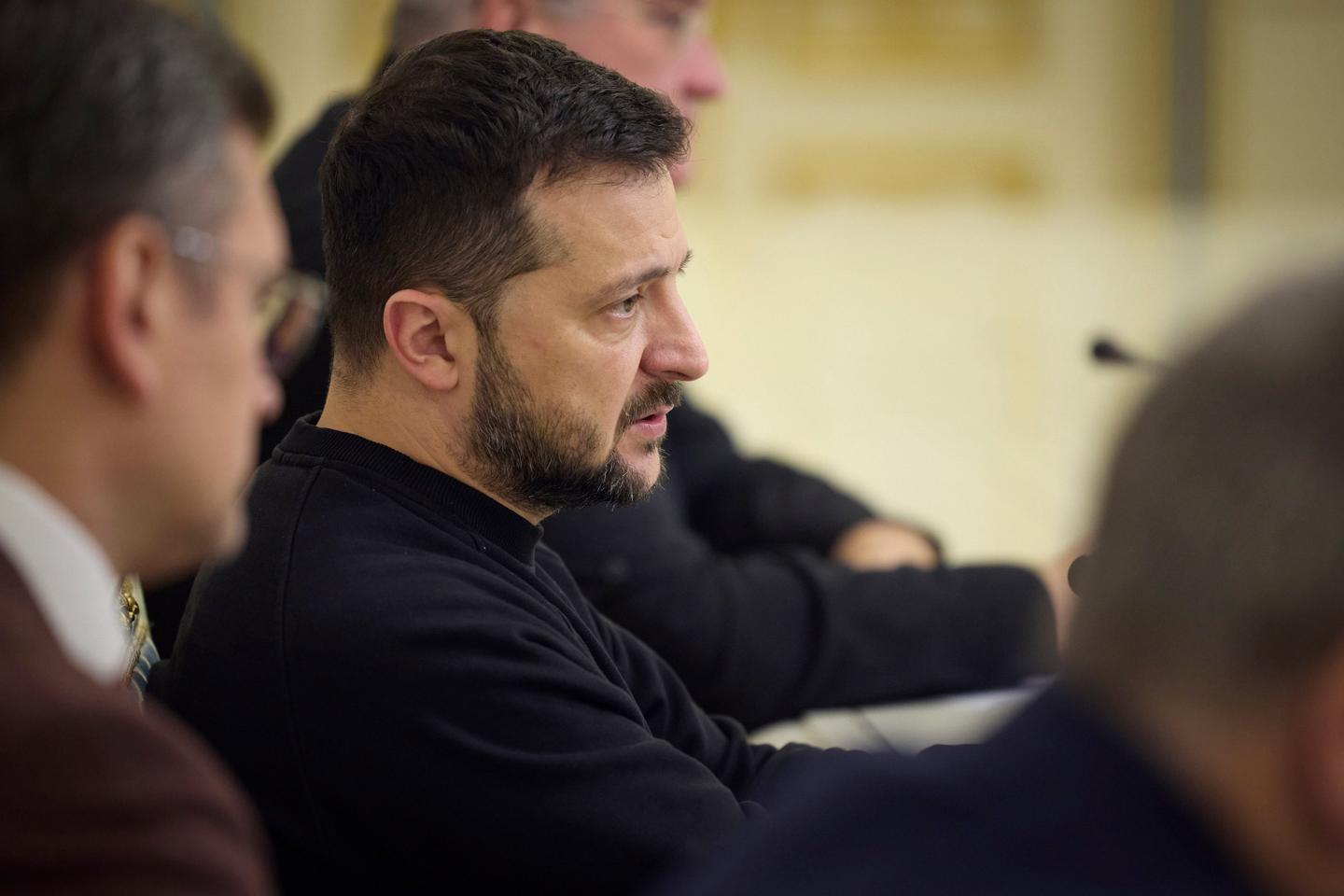


Ukrainian President Volodymyr Zelensky said Thursday, November 16, that deliveries of key artillery shells to his country had dropped off after fighting erupted between Israel and Hamas last month. Israel, which receives US military support, has relentlessly pounded the Gaza Strip since Hamas fighters launched an unprecedented assault on southern Israel last month.
"Our deliveries have decreased," Zelensky told reporters, referring specifically to 155-millimeter shells that are widely used on the eastern and southern frontlines in Ukraine, saying "they really slowed down". "It's not like the US said: we don't give Ukraine any. No! It's just that everyone is fighting for (stockpiles) themselves," he told reporters. "This is life. I'm not saying that this is positive, but this is life, and we have to defend what's ours."
Both Russia and Ukraine have struggled to maintain and secure stockpiles of shells after nearly two years of intensive long-range duels from batteries kilometers apart. South Korea has claimed that Russia's ally, Pyongyang, has sent one million artillery rounds to bolster Moscow's war in Ukraine in exchange for advice on satellite technology. Germany meanwhile said this week that the EU will not hit a one-year target of sending a million artillery shells to Ukraine, as the bloc struggles to secure arms supplies for Kyiv.
"Now the warehouses are empty or there is a legal minimum that a particular state cannot give you," Zelensky told reporters in Kyiv. "And this is not enough," he added. Zelensky however praised efforts in the United States to ramp up production. Neither Russia nor Ukraine has made any significant territorial gains for a year, and Kyiv's top army commander has said that fighting had ground to a stalemate.
Russia 'accumulating missiles'
Zelensky also told reporters Thursday that Russian forces were likely stockpiling missiles for strikes on his country's energy facilities over the coming winter months. Zelensky has previously warned that Russia is likely to increase air strikes against Ukraine's energy infrastructure ahead of the winter, as it did this time last year. "My estimation is that they are accumulating [missiles], but that they don't have many more missiles compared to what they previously had," Zelensky said, referring to attacks last year on critical infrastructure.
Kyiv in response has urged its allies abroad to bolster its air defense systems to stave off a repeat of last year's strikes, which left millions of people in the cold and dark for extended periods. "In terms of air defense, we are better than we were last winter," Zelensky said during a meeting with reporters in the capital.
He added that authorities had built more bomb shelters and increased aid points where civilians could keep warm and charge phones in the event of power outages caused by air strikes. But Zelensky warned in separate comments that Ukraine did not have "100 percent protection" from Russian aerial attacks. "Cities like Kharkiv, regions like Donetsk and Zaporizhzhia, need more [air defense] systems," he said in an evening address posted on social media.
He also told reporters that Western sanctions imposed on Russia in response to the war had slowed Russia's production of missiles, but that Moscow's supply of attack drones was "more or less fine". "Winter will be difficult but not worse than the previous one," Zelensky said.
Biden-Xi meeting 'good for us'
The Ukrainian leader also voiced optimism about a recent meeting between US President Joe Biden and his Chinese counterpart Xi Jinping. "We understand that this fact is good for us – their meeting," Zelensky told reporters in Kyiv, after the US and Chinese leaders held talks in California where they agreed to restore military communications.
China has refused to condemn Russia's invasion of Ukraine and has deepened its economic, diplomatic and military cooperation with Moscow since the start of the war in February 2022. The United States meanwhile has spearheaded the West's backing for Ukraine on the battlefield, providing multiple packages of financial and military support.
A close aide to Zelensky, Mykhailo Podolyak, earlier Thursday voiced "cautious optimism" over the Xi-Biden meeting, which was clouded by the US leader's characterization of Xi as a "dictator". The meeting "is a great signal to the world – dialogue instead of confrontation, a new global order, rules are needed necessarily, stability and predictability," Podolyak said on social media. Zelensky said he was unable to confirm that Biden and Xi had discussed the conflict in Ukraine but told reporters that Russia's nearly two-year invasion was raised "somehow".
